Unveiling agricultural heritages in Kaihua county
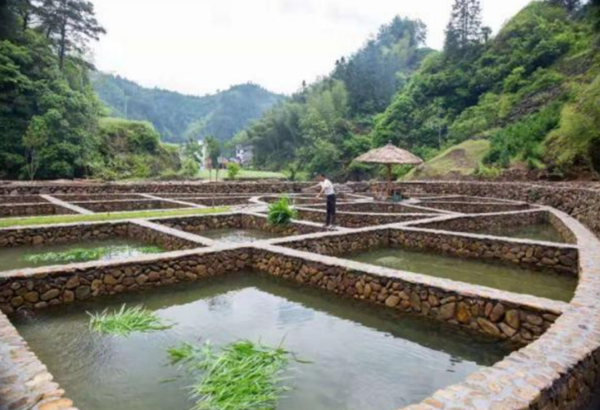
This mountain spring water fish rearing system is an agricultural heritage in Kaihua county, Quzhou. [Photo/Zhejiang Daily]
Five agricultural heritages in Kaihua county, Quzhou, Zhejiang Province have been recognized and included in the catalog of Important Agricultural Cultural Heritage Resources of Zhejiang Province. This announcement was made by the Zhejiang Provincial Department of Agriculture and Rural Affairs on Jan 16.
The recognized heritages are as follows:
Mountain Spring Water Fish Rearing System: Originating in the late Ming and early Qing dynasties (1368-1911), this system involved the construction of ponds alongside rivers, fields, roadsides, mountain crevices, and even inside houses.
It utilized stream water, mountain spring water, or spring water to raise fish. The fish ponds typically ranged from 7 to 20 square meters in area, with a water depth of 0.3 to 1 meters and were equipped with inlet and outlet water ports.
Longding Tea Culture System: This system, renowned for its premium green tea, was reintroduced in the 1950s and has undergone significant improvements, leading to the recognition of its tea's quality.
In 1985, it was honored as a nationally renowned tea. Contemporary tea expert Zhuang Wanfang praised the tea for its exceptional form, color, fragrance, and taste, positioning it as a rare and exceptional tea.
Pantaoshan Ginger Planting System: Named after its place of origin, this system originated during the Ming Dynasty when villagers in Pantaoshan village began cultivating ginger.
Situated at an altitude of 310 meters, the village features a moist and cool climate during the summer, along with sandy loam soil rich in organic matter, making it an ideal environment for ginger cultivation.
The ginger grown in this area is known for its plump appearance, crisp texture, moderate spiciness, and tender flesh, and is considered an excellent medicinal herb for various purposes.
Soybean Cultivation: Kaihua has a long history of soybean cultivation, and boasts a rich variety of resources and high soybean protein content. The soybeans are primarily utilized in the production of soy-based products such as tofu, tofu skin, and fermented bean curd.
Oil Tea Cultivation and Utilization System: Kaihua's oil tea cultivation system is a significant agricultural heritage, with a total dedicated area of 220,400 mu (14,693.33 hectares). This includes 179,000 mu of mature oil tea forests and 41,400 hectares of oil tea forests rated as high quality.
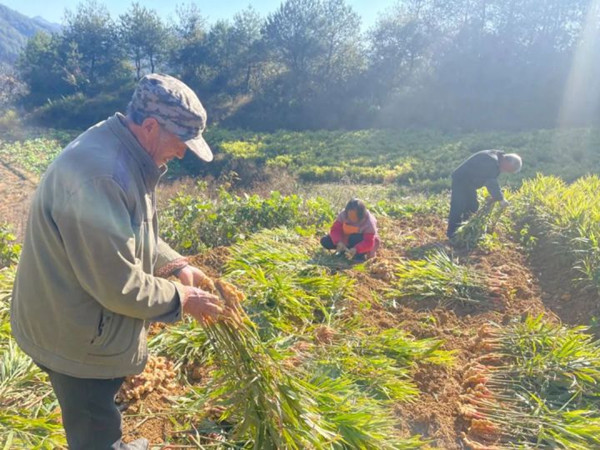
Ginger planting in Kaihua county has been shortlisted as a provincial agricultural heritage. [Photo/Zhejiang Daily]

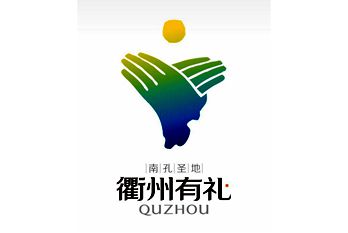 City brand logo - fist-and-palm salute
City brand logo - fist-and-palm salute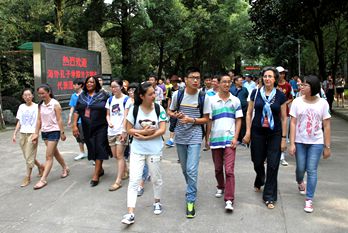 Confucianism on campus
Confucianism on campus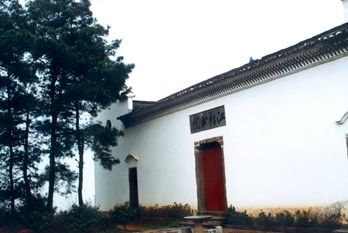 The culture of the academy
The culture of the academy